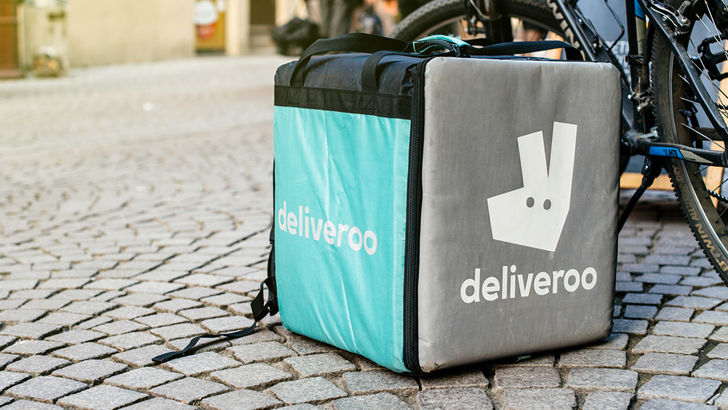Tips to boost your super when you don't work full-time
By Maria Bekiaris
The Australian workforce is changing and the rise of the "gig economy" is potentially posing a threat to retirement incomes.
The gig economy, where buyers and sellers of goods and services are matched or organised via web-based platforms, has shown exponential growth, says the Association of Superannuation Funds of Australia (ASFA).
The number of gig workers on platforms in Australia is up by 50%, from 100,000 to around 150,000 over the past year.
"Most new gig workers will be self-employed contractors," says ASFA CEO Martin Fahy. "Without reform to provide a super guarantee for these workers, many will end up with insufficient retirement income."
ASFA found the majority of the self-employed have either no or low superannuation balances and do not make regular contributions, despite the availability of tax concessions. And in the run-up to retirement, the self-employed have only about half the super savings of employees.
The average super balance for self-employed men at age 60-64 is around $143,000, compared with $283,000 for male wage and salary earners. Self-employed women in that age cohort have only $83,000, compared with around $175,000 for female wage and salary earners.
ASFA is developing proposals to formally include the self-employed in the SG regime and also ensure SG coverage for gig workers. It will release a policy paper on the gig economy and superannuation in coming months.
Hopefully, in time, change will come but in the meantime if you're making money from the gig economy and your super is suffering there are a number of ways you can grow your retirement nest egg.

1. Top up your super
Supercharge your super by making extra contributions - this could be a regular contribution from pre-tax income or a one-off, such as your tax refund. Small amounts can make a big difference - just adding $10 a week to your super could boost your future wealth by almost $24,000 if you're 28.
2. Take your super with you
Casual and contract workers often switch between jobs, picking up work wherever they can. If that sounds like you, make a point of taking your super with you. One of the best ways to achieve this is by choosing your own fund rather than relying on an employer's default option.
3. Watch for fund fees
When you're selecting a fund, it pays to be mindful of fees, which can eat into savings. According to Canstar, on a super balance of $20,000 you could pay as little as $134 in annual fees or as much as $678, so it's one area where it pays to shop around. Fees are often expressed as a percentage of your super savings. HESTA Super, which focuses on health and community services workers, estimates that paying annual fees of 2% rather than 1% could reduce your final super payout by up to 20% over 30 years.
4. Review your life cover needs
Around eight out of 10 super fund members sign up for default life insurance cover, and while that's a good thing for many workers the annual premiums, which are paid directly out of super savings, can rapidly erode the balances of younger workers who may not need life insurance. That makes it worth reviewing the cost of life cover through your fund and assessing whether you really need it, particularly if you have no major debts and no dependants.
5. Put your super in one place
Tax office figures show 43% of Australians have more than one super fund - one in five of us have at least three. Holding multiple accounts means losing more of your super to fees and perhaps doubling up on life insurance premiums. It also makes it harder to keep track of your nest egg throughout your working life, and a good chunk of the nation's $14 billion pool of lost or unclaimed super is believed to be the result of casual workers moving between jobs.
Tracking down lost super has become easier, and many funds have an option to search for missing super online. Once you've found all your super balances, roll multiple accounts into your preferred fund. Check if this could mean paying excessive exit fees or losing life insurance. If you have a pre-existing medical condition, for instance, it could be harder to obtain cover through a new fund.
6. Get the government to chip in
As casual workers often earn a low annual income, employer contributions may not be sufficient to fund a quality lifestyle in retirement. This makes it important to consider voluntary payments. It could even see you entitled to some "free" money.
If you earn less than $51,813 annually and make an after-tax contribution you may be eligible for a federal government co-contribution of up to $500. Depending on your income, the co-contribution can be worth 50c for every $1 you contribute up to a maximum co-contribution of $1000.
Check the co-contribution calculator on the MoneySmart website to see if you are eligible for the scheme and how much you're entitled to receive.
7. Ask your spouse to lend a hand
If earn less than $40,000 annually, ask your spouse or partner to make a contribution to your super fund. It could see your other half entitled to a tax saving of up to $540 under the spouse super tax offset.
8. Be wary of sham contracting
Be wary of what the Fair Work Ombudsman describes as "sham contracting". This is where a person working as an employee is told they are an independent contractor and therefore not entitled to employer-paid super. Quoting an Australian business number (ABN) doesn't necessarily mean you're a contractor. According to the FWO, signs that you are an employee include:
- Your work is directed and controlled by your employer.
- Income tax is deducted by your employer.
- You are paid wages or a salary regularly.
If you're unsure about whether you are a contractor or an employee, contact the FWO on 131 394.
Get stories like this in our newsletters.



